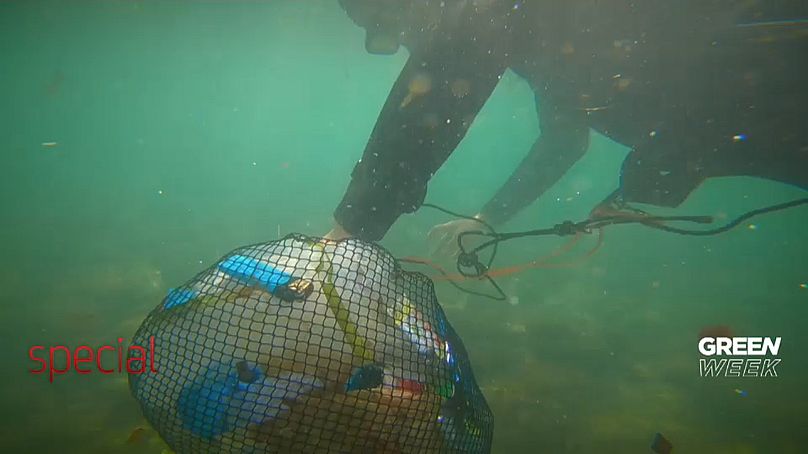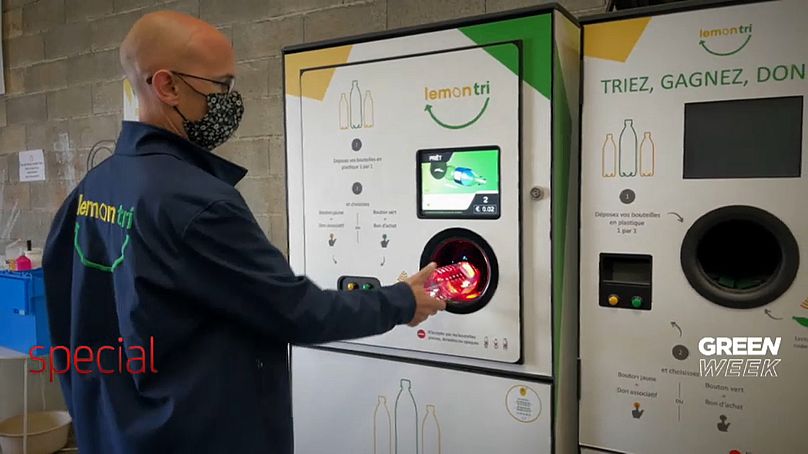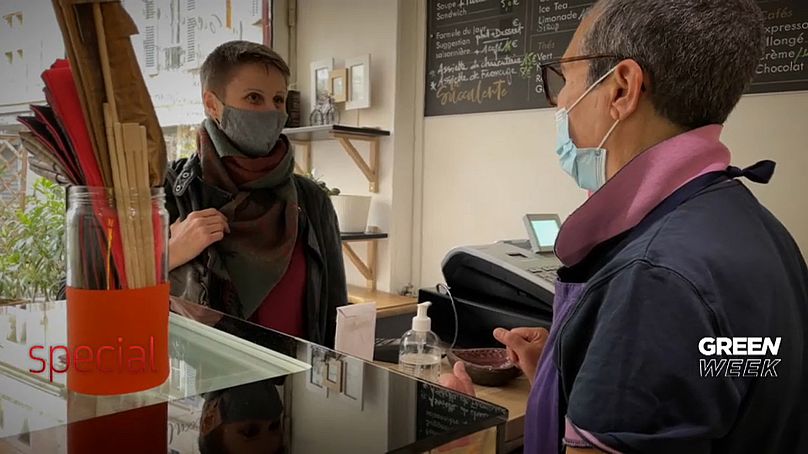Hundreds of thousands of tonnes of plastic pollute the Mediterranean every year. France produces a lot of the region's plastic waste and recycles less than its neighbours. In Marseille, locals are not waiting for the government to make a change, they are taking plastic waste into their own hands.
For the duration of euronews' Green Week, our magazine and news teams are exploring stories and solutions for a better planet from across Europe.
Every year, 600 000 tonnes of plastic end up in the Mediterranean Sea. France is the largest producer of plastic waste in the region and has a lower recycling rate than its European neighbours. It recycles only 24%. On average that's 16% less than Spain, Italy and the United Kingdom.
A law to limit waste was voted on at the beginning of the year. Major cities on the south coast have also promised to make more of an effort, but some locals and businesses in the Marseille region are no longer waiting for public authorities and are taking action by developing solutions themselves.
A Mediterranean problem
Plastic waste is everywhere. In Marseille, you can see it in parks, on the beach and in the harbour. When this plastic ends up in the Mediterranean Sea, it will take more than four centuries to degrade and it will contaminate the entire food chain.
Brice and Kévin are two experienced divers. Like NGOs and other associations, they collect plastic waste. In less than thirty minutes they show us that their nets are full of plastic waste. Kévin tells us that it's mainly "plastic packaging, cans, glass bottles, lighters and cups".
A plastic pollution tracking app
But Brice Masi, a biologist and entrepreneur, wants to do more. He is developing an app for all sea users to track plastic waste. He tells us that his ultimate goal is "to map out and gather information regarding the marine environment, to get a real picture of how our seas and oceans are evolving".
France is aiming to recycle 100% of its plastic waste by 2025. But some recycling capacities in the country remain insufficient.
Recycling and sorting initiatives
Lemon Tri in Marseille sorts kilos of plastic waste coming from businesses and universities. However, this private company does more than just collect. It helps people to "source and separate" before throwing things away. It does so by using clear rubbish bins and incentives, like a plastic bottle recycling machine that gives you a voucher for a bottle.
The company's goal is to try to reduce as much as possible the volume of plastic, as recycling does not limit its use.
The limits of recycling
Guillaume Pellegrin, the director of Lemon Tri tells us that tells us more about their process.
"The traditional approach is the more waste you collect, the more money you make. Here, our approach aims to reduce waste at the source. Before collecting it, we are going to try to reduce our waste".
The solution is to consume less plastic. Khadidja a takeaway restaurant owner, has tried. She has reduced her use of plastics, even though alternatives, like glass, cost her more. Despite this, she explains that she doesn't want to forget her role as a citizen in the name of trade.
What helped Khadidja with her decision to reduce her use of plastic was Stéphanie, a zero plastic activist.
Stéphanie actively tries to convince shopkeepers to stop using plastic and save money. However, according to her, recycling has its limits. She says that "even with recycling we continue to pollute, to have material losses, to exploit resources, and this is not a long-term solution, so we must also reduce our plastic consumption and replace disposable materials by reusable ones."
France wants to reduce single-use plastics by 2040. Plastic manufacturers consider this unrealistic. They are also concerned about the impact on growth. In 2019 European plastic manufacturers had a 350 billion euro turnover. Environmental associations think the government's goal is not legally binding and is too little too late.














